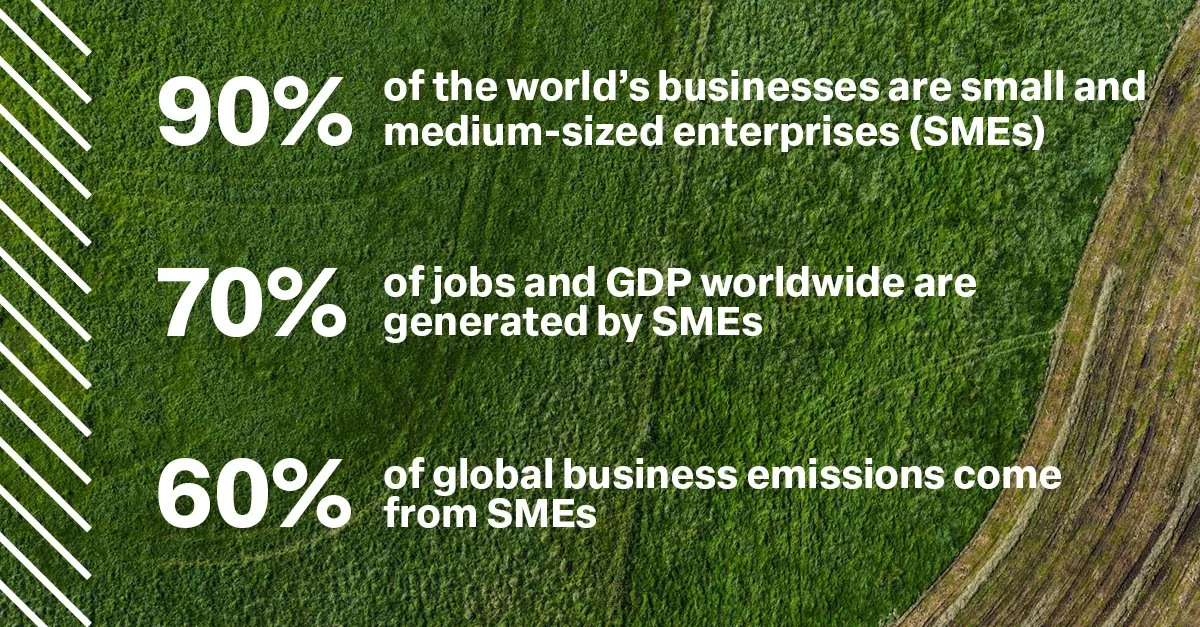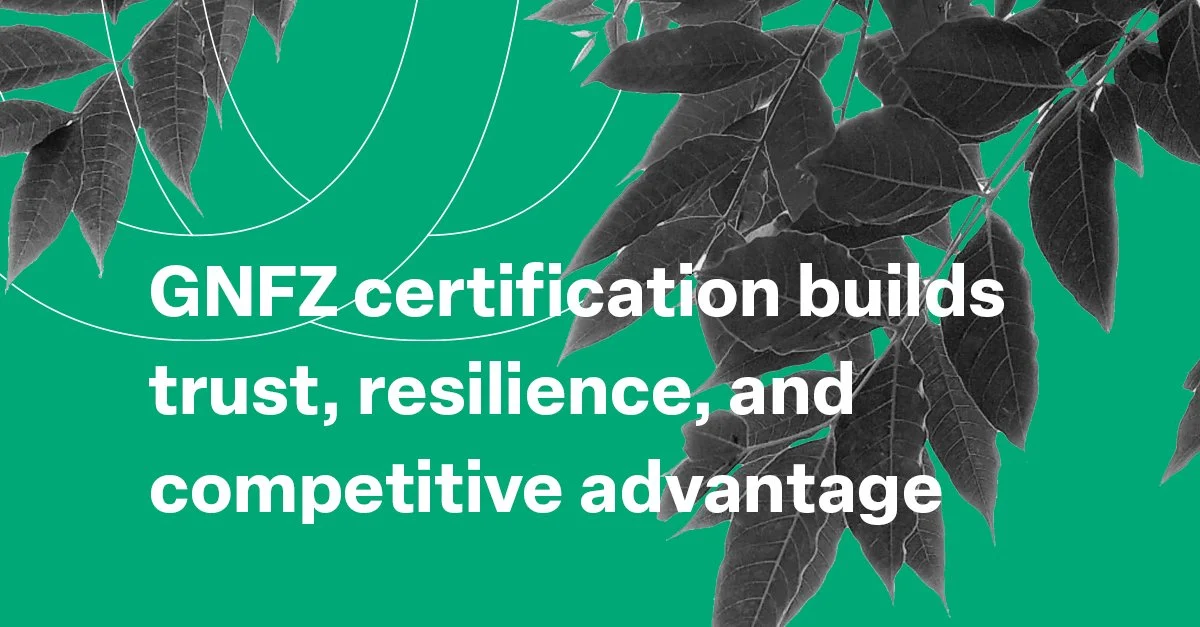Dispatches in Decarbonization: Net Zero for the 90% and Why SMEs Hold the Key to Climate Action
This article first appeared in Mahesh Ramanujam’s monthly LinkedIn newsletter, Dispatches in Decarbonization, on September 9, 2025. Subscribe on LinkedIn to receive these updates.
When people think of net zero, they often think of big-name brands. For many years, net zero commitments have been driven by multinational corporations such as Google, Amazon, Microsoft and Apple. With significant resources and global platforms, they have dominated headlines with both their successes and setbacks. While their stories can inspire others, the responsibility for decarbonization should not — and cannot — rest with Fortune 500 companies alone.
90% of the world’s businesses are small and medium-sized enterprises (SMEs). They generate 70% of jobs and GDP worldwide — and they account for up to 60% of global business emissions.
If we’re serious about meeting climate deadlines, we need to greatly expand the number of businesses that are all-in on decarbonization. SMEs can’t sit on the sidelines. They’re already being pulled into the net zero economy — by government regulations, by customer expectations, and by the larger corporations they supply. The question isn’t if SMEs will engage, it’s how quickly. Net zero is a strategic business imperative that will separate the leaders from the laggards.
From my own work with Global Network for Zero and the conversations I’ve had with SME leaders all over the world, I know that people want to act — but feel overwhelmed. Limited resources, lack of in-house expertise, financial limitations, the amount of time and effort it takes to ensure accurate data collection and the pressure of day-to-day operations can make decarbonization feel like a mountain too steep to climb.
But the good news is they don’t have to climb it alone. A growing ecosystem of partners, platforms and certifications exist to help SMEs drive immediate change and deliver the support they need, helping SMEs measure where they are, map Scope 1, 2 and 3 emissions, build net zero roadmaps and implement strategies that make sense for their business realities.
Standards like the Science Based Target Initiative (SBTi), for instance, are creating clearer, more flexible pathways for SMEs, while also raising the bar on accountability and transparency. Earlier this year, SBTi proposed several significant changes to its Corporate Net-Zero Standard, aimed at accelerating corporate decarbonization and making it easier for companies to set and achieve net zero targets. The updated SBTi standards offer greater flexibility in some areas for SMEs, such as Scope 3 emissions and carbon removal options. In fact, of the 2,267 companies with science-based targets validated in 2023, 1,425 were classed as SMEs.
Learn How GNFZ Certification Can Help Business and Building Owners Meet SBTi Targets →
But SBTi standards also impose stricter governance, faster deadlines and increased data transparency requirements — which is where help from a reputable net zero certification program comes into play.
At GNFZ, we stand ready to support SMEs navigate their decarbonization journeys. Our certification is fully aligned with SBTi – as we both leverage the Greenhouse Gas Protocol (GHG Protocol) as our default methodology – ensuring that companies can meet global climate standards with confidence. Our certification process incorporates the rigor of SBTi requirements, including science-based target setting, Scope 1, 2 and 3 emissions mapping and transparent reporting. By embedding SBTi principles, GNFZ provides SMEs and larger organizations alike with a trusted pathway to validate their climate strategies, demonstrate credibility, and stay ahead of evolving regulatory and market expectations.
We help SMEs start where they are, providing tailored guidance to measure emissions, engage suppliers, set practical roadmaps, and implement strategies that deliver impact without overwhelming resources. GNFZ certification builds trust, resilience, and competitive advantage, enabling SMEs to strengthen customer loyalty, attract investment, and unlock growth opportunities in a rapidly decarbonizing global economy.
And the payoff is real. The benefits of meaningfully decarbonizing SMEs far outweigh the costs.
Companies that invest in decarbonization aren’t just reducing risk or checking a compliance box. They’re earning customer trust, future-proofing their assets and gaining a competitive edge in markets where 78% of consumers say sustainability matters to them.
In green building and beyond, I see SMEs as the unsung heroes of the net zero transition. They may not make the headlines, but their collective action is what will make or break our progress toward a zero emissions world.
Now is the time for SMEs to act with urgency. And now is the time for us — as sustainability professionals, green building leaders and net zero advocates — to make sure they have the tools and support to succeed.
Because net zero isn’t just for the Fortune 500. It’s for the 90%.




